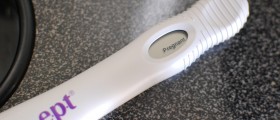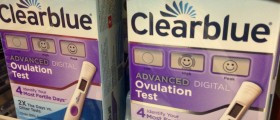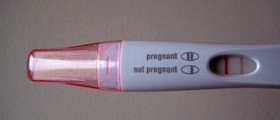
Ovulation tests are essentially nothing more than strips that react to contact with luteinizing hormone, or LH for short. This is a hormone that is present in your urine when you start ovulating, so when you urinate onto the ovulation test, the test will react by telling you whether LH is present in your urine or not. Luteinizing hormone is very specific to ovulation, and ovulation tests are extremely reliable. Most women ovulate somewhere in the middle of their menstrual cycle. It is not necessary to test every day of your cycle, until the test comes up positive. Estimating when your ovulation is likely to take place by using an ovulation calendar, and then starting tests up to five days beforehand, is quite enough.
The largest concentration of LH is found in the urine in the afternoon. That is why, unlike pregnancy tests, it is best to do an ovulation test in the afternoon. You receive a positive signal to have as much intercourse as you can as soon as the test tells you that you are ovulating and therefore fertile. But we've got to note that sperm can survive in the female body for around five days, and that there is a point to having intercourse before you get a positive ovulation test too.













Your thoughts on this
Loading...